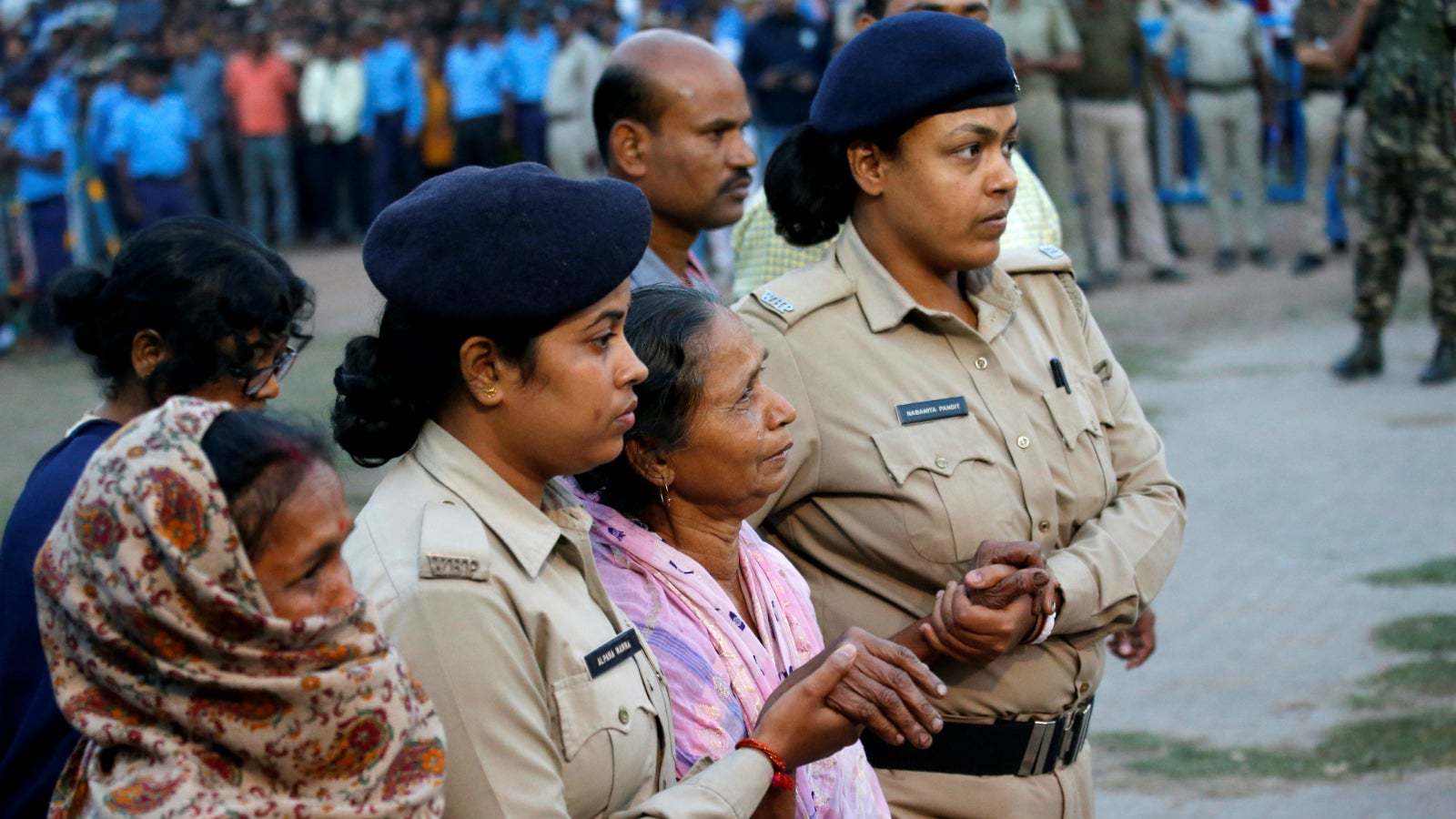Violence rocks Kashmir’s Pulwama district again days after a deadly attack on security forces
This post has been updated.


This post has been updated.
Calm has yet to return to Pulwama district in the restive Indian state of Jammu & Kashmir.
Early this morning (Feb. 18), four Indian army personnel—three soldiers and an officer, according to NDTV—were killed in an exchange of gunfire with militants in the region.
Two militants reportedly died in the gunfight, including Kamran, a “commander” of the JeM, who is thought to have been a mastermind behind the Feb. 14 attack. Another militant—an Afghan bomb specialist—was killed as well.
A civilian also reportedly died in the encounter.
This comes just four days after at least 40 Indian security personnel were killed in the same place, when a suicide bomber rammed an SUV into a convoy of the Central Reserve Police Force. The Pakistan-based militant organisation Jaish-e-Mohammad (JeM) has claimed responsibility for that attack.
The attack comes at a crucial political time for India, as the country is expected to hold its next general election in April-May. It has worsened the security situation in an already restive state, where encounters between militants and security forces are common, as are protests against Indian security forces’ presence.
The last time such a big attack occurred was more than two years ago, when 19 Indian soldiers were killed by four JeM militants in the town of Uri. At that time, it was the deadliest attack on Indian security forces in 20 years. Less than two weeks after Uri, India retaliated with “surgical strikes” against militant strongholds across the Line of Control in Pakistan-administered Kashmir, reportedly killing dozens.
Now, everyone, including the international community, is waiting to see how India will react to the latest outrage. Yesterday, at a public gathering in the northern state of Bihar, prime minister Narendra Modi referred to the attack saying, “The fire that is burning in your hearts is also burning in mine.”